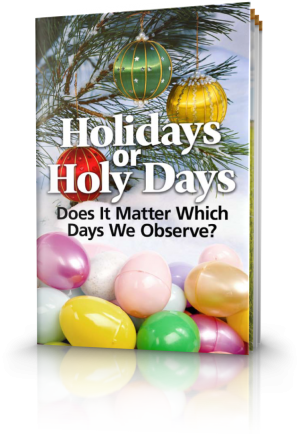Would Jesus Keep Easter?
Would Jesus Keep Easter?

Do colored eggs and rabbits have anything to do with Jesus Christ? Learn the true meaning of the Easter holiday.
Each spring the excitement of Easter fills the air. Many churches prepare special Easter programs about the death and resurrection of Jesus Christ. Parents color eggs and hide them with chocolate bunnies in their yards - so on Easter morning the children can search for these goodies.
Can we find any historical or biblical record of Jesus or His disciples keeping Easter or teaching parents and children to dye eggs and display bunnies on this holiday? Did Jesus or His apostles instruct any of His followers to worship His resurrection at sunrise on Easter Sunday—or at any other time, for that matter?
If Easter were not sanctioned by Jesus or instituted by His apostles, then where did Easter come from? In other words, if Jesus were living among us today, would He keep Easter or encourage others to do so? Should you, as a Christian, celebrate Easter?
Few people know why they believe or do the things they do—especially when it comes to their religious beliefs and practices.
If you want to discover the real facts about Easter, order this free Bible study aid booklet Holidays or Holy Days: Does It Matter Which Days We Observe?
Inside this helpful booklet, discover the shocking truths about several of the world's most popular holidays. Perhaps even more surprising is how they came to be connected with Jesus Christ and the Christian religion.
Request your FREE copy today!
The word Easter appears once in the King James Version of the Bible, in Acts:12:4, where it is a mistranslation (p. 17).
The New Testament does not mention an Easter celebration. Early Christians had nothing to do with Easter. Instead, they kept the Passover, instituted by God centuries earlier at the time of the Exodus (Exodus 12:13-14; Leviticus 23:5) (p. 22).
As Easter replaced Passover, not only was a new date selected (the Sunday after the spring equinox rather than the biblically directed Nisan 14), but a new theme was introduced (p. 25).
The popular belief is that Christ was crucified on a Friday and rose on a Sunday. But neither of these suppositions is supported by the biblical record (p. 27).